Photo group internal meeting table.jpg

The central function of the Board is to provide advice on science, technology and innovation (STI) for sustainable development to the UN Secretary-General and to Executive Heads of UN organizations. The Board brings together in a coherent manner the collective capacity of all relevant scientific fields, with due regard to social and ethical dimensions of sustainable development. The fields span a broad spectrum, from the basic sciences, through engineering and technology, social sciences and humanities, ethics, health, economic, behavioral, and agricultural sciences, in addition to the environmental sciences, which are more commonly associated with sustainability.
According to its Terms of Reference, the Scientific Advisory Board is entrusted with the following functions:
-
strengthening the linkage between science and policy;
-
ensuring that up-to-date and rigorous science is appropriately reflected in high-level policy discussions within the UN system;
-
offering advice, in cooperation and consultation with the UN agencies concerned, on how the many organizations in the UN system with a science, technology, engineering and humanities mission in the area of sustainability can work together more effectively, avoid mission creep and overlap, and curb counter-productive competition;
-
offering recommendations to the Secretary-General on priorities related to science for sustainable development that should be supported or encouraged within or by the UN system, including for the post-2015 development process;
-
carrying out relevant intellectual work including providing advice to the UN Secretary-General on up-to-date scientific issues relevant to sustainable development, including advice on “assessments and digests around concepts as ‘planetary boundaries’, ‘tipping points’ and ‘environmental thresholds’…”, as indicated in Recommendation 51 of the report of the GSP. This will allow the Secretary-General to articulate scientific issues which have attracted widespread attention in contemporary affairs;
-
identifying knowledge gaps that could be addressed outside the UN system by either national or international research programs, e.g., the emerging ‘Future Earth’ programme;
-
identifying specific assessment needs that could be addressed by ongoing assessments (e.g., IPCC or the IPBES) or new assessments activities to be developed within the UN system;
-
advising on issues related to the public visibility and understanding of science;
-
offering insight on democratic global governance, focussed on sustainability and the responsible and ethical development of science.
-
any other matter as may be assigned by the UN Secretary-General.
The Director-General of UNESCO, Ms Irina Bokova, was entrusted by the UN Secretary-General to act as Chairperson of the Board. At each session of the Board's meetings, a Co-Chair is designated among the members of the Board.
